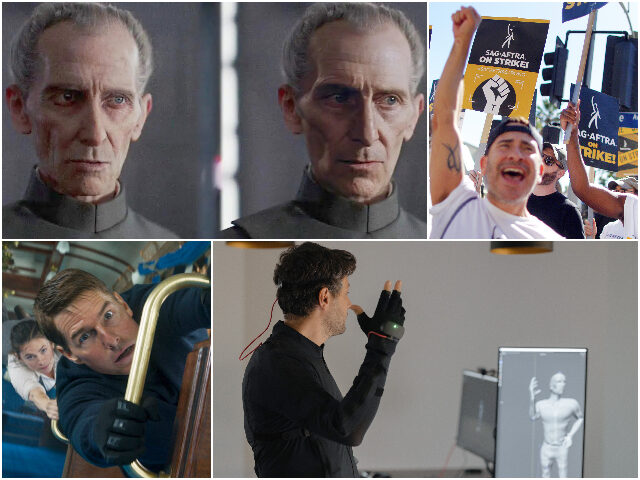A clash is brewing in Hollywood as actors seek to impose limits on artificial intelligence technology — particularly when it comes to their digital likenesses — while studios are pushing back, arguing that such limits would violate First Amendment rights.
The growing dispute became evident during a Congressional hearing on Tuesday when representatives of SAG-AFTRA and the Motion Picture Association voiced differing views on a draft Senate bill called the No Fakes Act, which would give actors a “digital replication right” to authorize the use of their image, voice, or visual likeness.
Crucially, the “right” would be inherited by an actor’s descendants.
On Tuesday, the Senate Judiciary Committee’s Subcommittee on Intellectual Property heard from a series of witnesses on the No Fakes Act. In addition to representatives from SAG-AFTRA and the MPA, the British rapper FKA twigs was also present to give her view on AI.
The MPA, which is the Congressional lobbying organization that represents the major studios and streamers, called the draft bill overly broad, adding that it would have a negative effect on creativity in Hollywood.
The MPA’s senior vice president Ben Sheffner cautioned that “legislating in this area involves doing something that the First Amendment sharply limits: Regulating the content of speech,” he said, according to a Deadline report.
“It will take very careful drafting to accomplish the bill’s goals without inadvertently chilling or even prohibiting legitimate, Constitutionally protected uses of technology to enhance storytelling.”
At one point, Sheffner reportedly referenced the movie Forrest Gump for its scenes involving digitally altered versions of former presidents.
“To be clear: Those depictions did not require the consent of their heirs,” Sheffner said. “And requiring such consent would effectively grant heirs or their corporate successors the ability to censor portrayals they don’t like, which would violate the First Amendment.”
SAG-AFTRA’s Duncan Crabtree-Ireland voiced support for the draft bill.
“It’s shocking that anyone would think that this right doesn’t deserve to be preserved and protected after death…It’s an economic right. It’s a personal right. And it’s something that has real value,” he reportedly said.
AI was a major point of contention during last year’s actors strike, which, along with the concurrent writers strike, brought most of Hollywood to a historic halt for several months, with numerous TV and movie productions being forced to suspend activity at enormous cost to the studios.
When the dust finally settled, SAG-AFTRA claimed it had scored important victories in protecting its actor members against the encroachment of AI. But questions remain about just how significant those victories were, with some dissenters saying they fall short of true protections, giving studios room to work around them.
Tuesday’s hearing showed that the two sides are still far apart on the subjet, and that the studios aren’t backing down on their zeal for AI.
The Writers Guild of America also trumpeted a supposed victory. Studios must now disclose if any material given to writers has been generated by AI. In addition, studios can’t force writers to use AI, nor can AI receive credit on a TV show or movie.
But again, ambiguities abound. AI applications like ChatGPT are already being used by some writers as a tool in their creative process. And studios are expected to search for legal loopholes that will enable them to capitalize on the technology.
Follow David Ng on Twitter @HeyItsDavidNg. Have a tip? Contact me at dng@breitbart.com

COMMENTS
Please let us know if you're having issues with commenting.